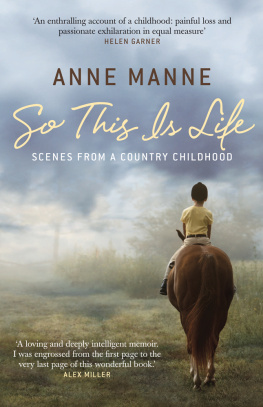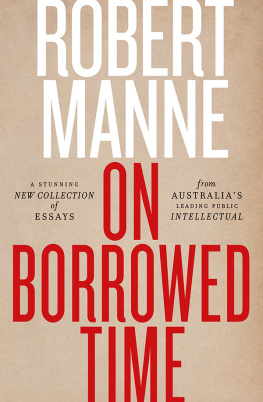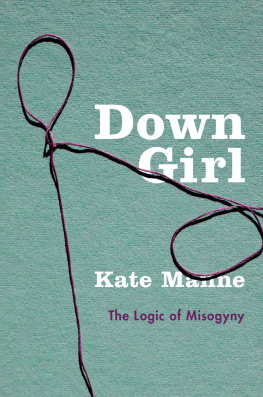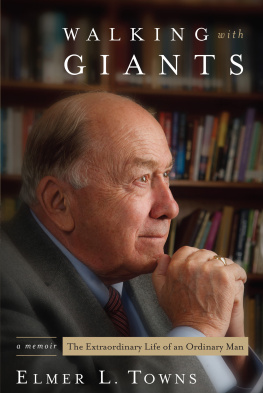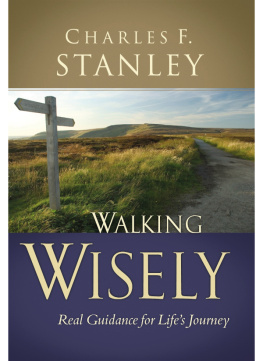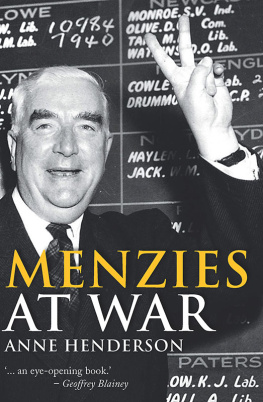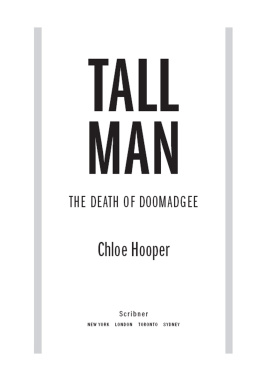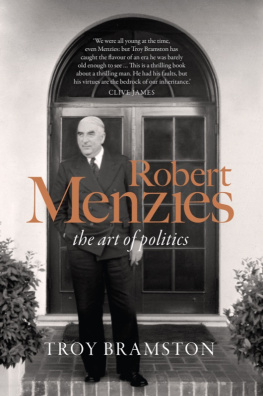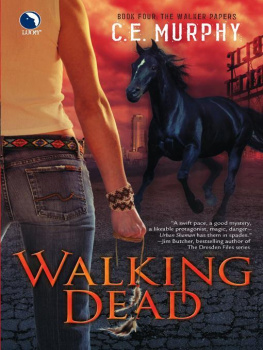This birth of this book was more painful and slower than mostit was written during a very difficult time in my life, where a seemingly never ending series of problems threatened to capsize the enterprise. Those challenges made me especially grateful to Louise Adler and Foong Ling Kong not only for the persistence they showed pursuing me in a long publishing courtship, and the pleasure of their company in many sparkling lunches, but above all for their unfailing courtesy, patience and kindness throughout my time of troubles, qualities maintained alongside their continued belief that the final book would be worth having. Louise, brimming with life, ideas and energy, always making life seem a lighter thing, has been exceptionally generous to me. Foong Ling, whose calmness is like a balm to the soul of a flustered author, has proved a delicate reader and skilful editor, and the book is the better for her work. I am honoured to call both of them friends.
I count myself very lucky to have Mary Cunnane as an agent. A friend had introduced me to her as a brilliant agent, but also saying she knew how much I would like Mary. She was right. I have come to deeply value Mary for her entirely unrancorous candour, her capacity to be interesting on and interested in absolutely everything, her sharpness and shrewdness about all aspects of writing, but most of all for her warmth, generosity and the word she would most valuekindness.
Thanks, too, to my sisters who shared the life and times from which these stories came, whose determinedly resourceful and cheerful qualities mean that either of them might have borne the middle name Resilience. I am grateful to my mother for the remarkable courage and fortitude she showed in making a go of things when we settled in that country town all those years ago.
Thanks too, to my beloved daughters who always help me keep in sight what is most important in life, and who despite being terrifyingly good readers, remained staunchly loyal in their eagerness to read the finished product. Most deeply, without my husband Rob, whose love and steady, unshakeable faith in my writing has been such a source of nourishment and strength when my own confidence has faltered, this book would never have been written. Rob is one of the great encouragers in life. His capacity to be deeply generous to others no matter what he is going through, never fails to move me. To him, as always, my deepest love and gratitude.
O n a winters night our family stood almost mute, barely speaking, on a dark railway platform. The engine hissed and steam rose from the tracks. I could hear nearby the rumble of trainsguttural and ominouspulling away from their platforms. The hoots of the locomotives mingled with the urgent sound of the loudspeaker directing passengers. Travellers scurried past, lugging heavy suitcases.
It was 1962. I was seven years old. My parents marriage had broken downit took a long time dyingtaking my mothers health with it. It was the strangest separation, along gender lines, men on one side, and women on the other. My mother and her three daughters were leaving the city of Adelaide, by the overnight train, to take shelter with her family in country Victoria. My brother was staying with my father. From the carriage window I could see my fathers face, frozen, rage all gone. My brother, just two years older than me, stood still and silent. As the train pulled out from the sidings, the last thing I saw in the gloom was his wan little face watching blankly as his mother and sisters disappeared from view.
My childs heart was tumbling with contradictory emotions: not only grief at leaving my brother, but also hope. As the train gathered speed I pressed my forehead to the window, feeling its coolness, willing the train onward, bearing us out of an ugly past and into a future where I hoped wewhat was left of our family, but especially my mothermight survive. I stared out into the darkening countryside at the blurry, indistinct outlines of towns as they flashed by with such intensity that someone, misunderstanding, told me that there would not be anything much to see until we got over the border.
The Border?
In my seven-year-old mind The Border instantly achieved majestic, monumental proportions, but also inspired fear. The Border sounded a great barrier, an insurmountable obstacle we might not be able to make it past. My imagination immediately conjured up an image of our train climbing a long, unending mountain at the top of which was a towering brick edifice, from which we would fall back, defeated, beaten, into South Australia, into Adelaide, into my fathers house and certain disaster. If we made it over The Border, we would be on the other side, we would be safe. I was flabbergasted when later I learned that The Border was nothing one could see, just an invisible part of a flat landscape, an entirely arbitrary, nondescript point in the dusty dirt line that divided South Australia and Victoria.
In the hard, second-class seats we slept in uneasy starts and snatches but the next time I looked out, a yellowy dawn light was creeping slowly over the countryside. I could see rolling hills and quiet, tree-filled valleys, mist hanging in their soft folds, and the quick glimpse of something I had never seen before, an iron lace veranda. Are we over The Border yet? I asked anxiously. A sister answered Yes. Relief and joy flooded through me like sunlight bursting through cloud.
Then our progress slowed and we stopped at a country station, Ararat or Ballarat, and my sisters were despatched for breakfast. I realised I was very hungry. Someone handed me a brown paper bag from which I pulled a greasy toasted sandwich with a puddle of melted butter on top, cheese drooling out, and my appetite vanished. But there was tea, warm, brown and very sweet, in a white china railway cup, which I drank thirstily and gratefully. I have loved tea ever since.
I dont remember how we got from Melbourne to Bendigo. Another train journey? It seems impossible that my grandparents would have been able to nurse their lurching, erratic, grey 1930s Morris Minor with its dicky gearstick and top speed of 30 miles per hour all the way to Melbourne. No, it must have been by train. What I do remember is the landscape, for towards the end of the journey I could see hills both ancient and gentle, with the rounded, soft forms born of the passage of time. Clusters of grey, granite rocks, half-submerged, dotted the hillsides upon which sheep grazed lazily. Dense forests of paper-bark gums formed canopies overhead, splintering the pale, slanting light of the late afternoon. These tracts of bush-land alternated with wide, open fields, the ochre ground showing hard and cracked between stiff spikes of yellow grass. By then we were exhausted, but even through the scratched veil of tiredness, at a certain point I looked out and knew, just as one knows at the dawning of consciousness after an operation, that one is still alive, that we had finally arrived at a place of shelter.
We had travelled not just to a different landscape, from the capital city of one state to a country town in another. It also seemed as if we had travelled across another kind of border, into a different time zone. We were returning to my mothers family, my grandparents and the great aunts, whose lives seemed frozen in aspic since the Victorian era. No one was under sixty-five. The first thing I remember of that world we entered was the silence, only broken by the steady sound of clocks ticking. Everywhere clocks ticked, preoccupied by the quiet measuring of time, the gentle chime on the hour of the grandfather clock the only reminder that the present was slipping into the past. Occasionally, in the distance, at regular intervals, a locomotive gave a long, low hoot, before rumbling away. One could hear the soft brush of vegetation against iron lace verandas, and suddenly, startlingly, the sharp bark of a dog. Otherwise silence.

